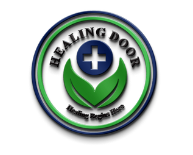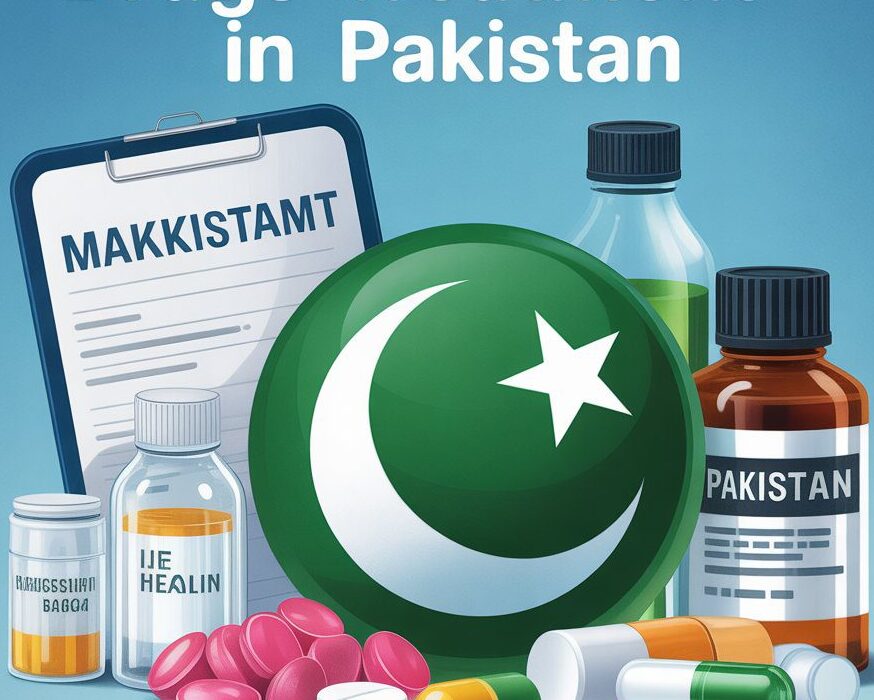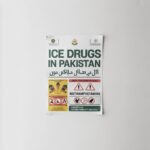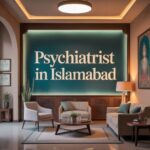A New Dawn: Understanding Drugs Treatment in Pakistan
The shadow of drug addiction stretches across nations, impacting individuals, fracturing families, and challenging communities. In Pakistan, the conversation around substance abuse is often shrouded in stigma and silence, which can prevent those who are struggling from seeking the help they desperately need. However, a crucial shift is occurring, with a growing recognition that addiction is a complex medical condition, not a moral failing. This has led to the development and availability of professional drugs treatment in Pakistan. Understanding the pathways to effective drugs treatment in Pakistan is the first step toward breaking the cycle of addiction and fostering a journey of recovery, healing, and hope for a brighter future.
The landscape of addiction in Pakistan is diverse, encompassing substances from heroin and cannabis to the rising threat of synthetic drugs like crystal meth (Ice). Each substance creates a unique grip on the brain and body, but they all share a common outcome: a loss of control and a deterioration of physical and mental health. Consequently, effective drugs treatment in Pakistan must be as multifaceted as the problem itself. It requires a compassionate, evidence-based approach that addresses the biological, psychological, and social dimensions of addiction, offering a lifeline to those feeling trapped in the cycle of dependency.
The Foundational Steps of the Recovery Journey
The path to recovery is a structured process, designed to provide safety, stability, and the tools for long-term sobriety. It typically begins with the most critical phase: medically supervised detoxification.
Medically Supervised Detoxification: A Safe Start
Abruptly stopping drug use can be dangerous, leading to severe and sometimes life-threatening withdrawal symptoms. These can range from intense nausea and muscle cramps to anxiety, insomnia, and seizures, depending on the substance. A professional drugs treatment in Pakistan program prioritizes safety through medically supervised detox. In a clinical setting, healthcare professionals can administer medications to manage these symptoms, provide 24/7 monitoring, and ensure the individual’s comfort and stability. This supervised process not only safeguards the patient’s health but also significantly increases the likelihood that they will successfully transition into the next phase of comprehensive rehabilitation.
The Core Components of Comprehensive Rehabilitation
Detoxification addresses the physical dependence on a substance, but it is only the beginning. True recovery requires healing the psychological wounds and behavioral patterns that fuel addiction.

Behavioral Therapies: Rewiring the Mind
Therapy is the cornerstone of sustainable recovery. Several evidence-based modalities are used to help individuals understand and change their relationship with drugs.
- Cognitive-Behavioral Therapy (CBT): This is a highly effective approach that helps individuals identify and challenge the negative thought patterns and behaviors that lead to drug use. It teaches practical coping skills to manage stress, deal with cravings, and avoid triggers.
- Motivational Interviewing (MI): This client-centered technique helps resolve ambivalence about quitting, strengthening an individual’s own internal motivation and commitment to change.
- Group Therapy: The power of shared experience is profound. In a facilitated group setting, individuals can reduce feelings of isolation, gain support from peers, and learn from the successes and challenges of others on the same journey.
Medication-Assisted Treatment (MAT): A Modern Tool
For certain addictions, particularly to opioids like heroin, Medication-Assisted Treatment (MAT) is a revolutionary tool. It is crucial to understand that MAT is not “substituting one drug for another.” Instead, it uses FDA-approved medications like buprenorphine or naltrexone to normalize brain chemistry, block the euphoric effects of opioids, and relieve physiological cravings. When combined with counseling, MAT provides a stable foundation from which individuals can rebuild their lives.
Family Involvement and Aftercare Planning
Addiction is a family disease, and healing the family system is a vital part of recovery. Quality treatment programs involve family members through therapy and education, helping to mend broken trust and create a supportive home environment. Furthermore, a robust aftercare plan is developed before discharge. This plan, which may include ongoing outpatient therapy, support group meetings like Narcotics Anonymous (NA), and vocational counseling, is essential for preventing relapse and supporting the individual as they navigate the challenges of a drug-free life.
Breaking the Stigma: A Collective Responsibility
One of the biggest barriers to seeking help in Pakistan is the deep-seated stigma associated with addiction. This stigma often breeds shame and forces the issue into the shadows. It is imperative to reframe the conversation: addiction is a chronic brain disorder, and seeking treatment is an act of courage and self-care. By promoting awareness and understanding, we can create a society where individuals feel empowered to seek help without fear of judgment, and where families are equipped with the knowledge to support their loved ones.
The journey of recovery is challenging, but it is a journey that no one has to walk alone. With the right professional support, a strong personal commitment, and a compassionate community, recovery is not just a possibility—it is an achievable reality. By embracing modern, humane, and comprehensive drugs treatment in Pakistan, we can illuminate the path out of addiction and toward a future defined by health, purpose, and renewed hope.
Frequently Asked Questions (FAQs)
1. How do I know if I or a loved one needs professional treatment?
Signs include an inability to control or stop drug use, neglecting work or family responsibilities, experiencing withdrawal symptoms when not using, and continuing to use despite negative consequences to health, relationships, or finances.
2. Is treatment for drug addiction confidential?
Yes, reputable rehabilitation centers in Pakistan are bound by strict patient confidentiality rules. Your privacy is protected by law and ethical guidelines, ensuring that your decision to seek help remains private.
3. How long does a typical treatment program last?
The duration varies based on individual needs, but common programs last 30, 60, or 90 days. Research shows that longer treatment durations are often associated with more sustainable outcomes, as they allow for deeper therapeutic work.
4. What is the success rate of drug addiction treatment?
Success is measured by sustained recovery and improved quality of life. While relapse can be part of the journey, comprehensive treatment that includes aftercare significantly increases the chances of long-term success. It’s more helpful to view recovery as a manageable chronic condition, similar to diabetes or hypertension.
5. How can I support a family member who is in treatment?
Educate yourself about addiction, offer non-judgmental emotional support, and participate in family therapy sessions if offered. It is also crucial to set healthy boundaries and take care of your own mental health, as addiction affects the entire family system.




